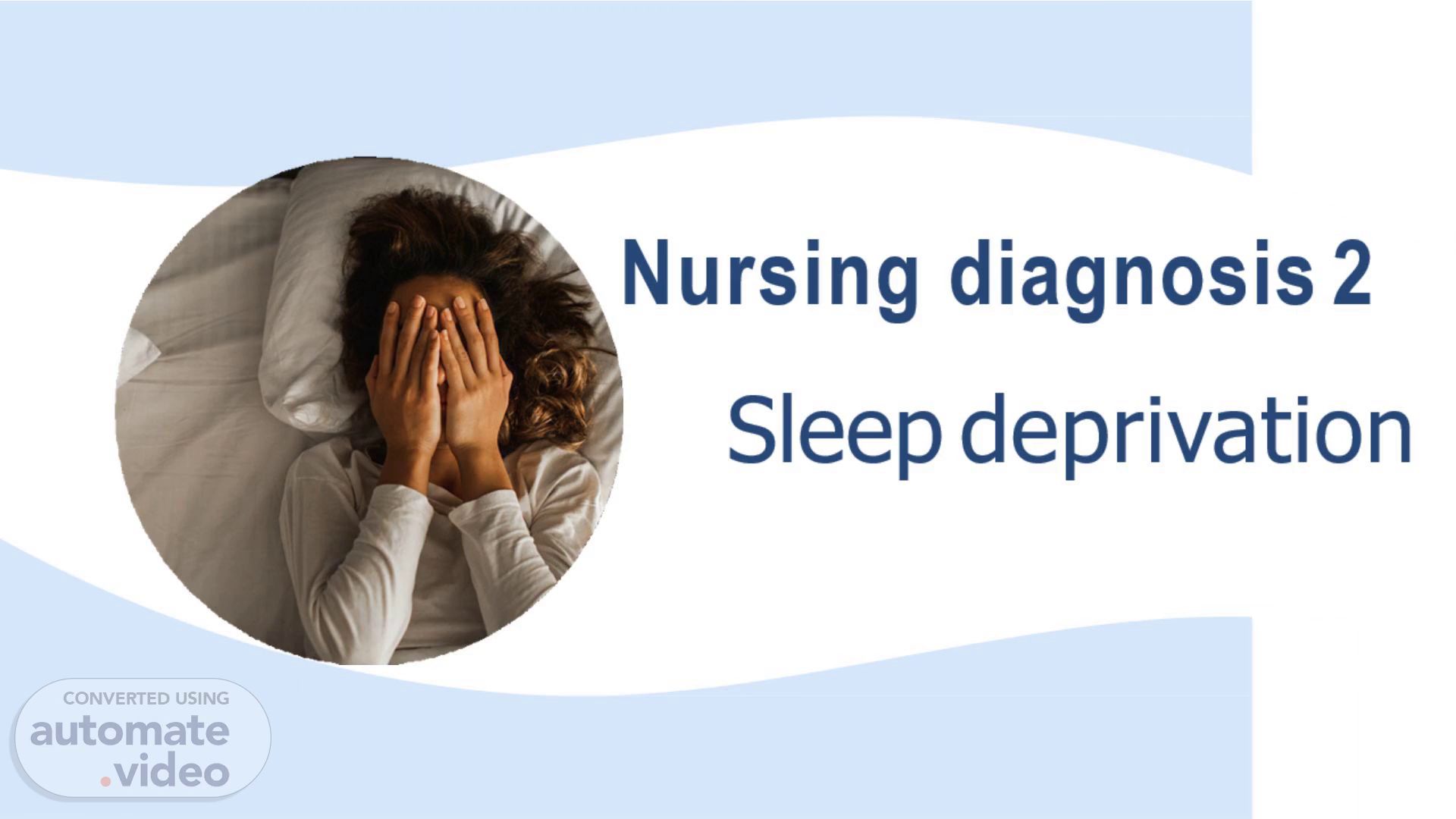Scene 1 (0s)
Nursing diagnosis 2 Sleep deprivation. 1.
Scene 2 (7s)
Nursing diagnosis 2. 2. Stress urinary incontinence related to involuntary loss of urine as evidenced by positive urinary stress test and urine leakage found while coughing, sneezing, lifting and washing dishes ..
Scene 3 (19s)
Mary drinks 2 cups of coffee daily before starting work.
Scene 4 (43s)
2. Sleep deprivation. 1. Planning Nursing Interventions Rationales Evaluation 1. Mary will reduce the frequency of voiding at night and continuously sleep for more than 4 hours every night within 2 weeks. Assess Mary's caffeine intake and encourage her to reduce the coffee consumption. Educate Mary on sleep hygiene habits, such as establishing a regular sleep schedule, limiting fluid intake in the evening, and voiding before bedtime. Caffeine was found helpful in temporarily managing daytime sleepiness, but it can lead to subsequent sleep disruption and habituation to caffeine (Park et al., 2023). A regular bedtime and healthy eating habits such as a low salt diet and reducing fluid intake at least 4 hours before sleep can enhance sleep quality and reduce the frequency of nocturia in the elderly (Tabara et al., 2019). ➔ The problem of nocturia has been reduced to once a night and Mary does not need to rely on coffee to stay awake during the day. 2.
Scene 5 (1m 23s)
2. Sleep deprivation. 5. Planning Nursing Interventions Rationales Evaluation 1. Mary will reduce the frequency of voiding at night and continuously sleep for more than 4 hours every night within 4 weeks. Refer Mary to a physical therapist for pelvic floor muscle exercises training to strengthen the muscles and reduce nocturia. The pelvic floor muscle training is proven to strengthen the muscles under the uterus and bladder which can improve the quality of sleep of women with nocturia (Furtado-Albanezi et al., 2018). ➔ Mary feels more energetic and healthy than 1 month before after performing regular exercises 3 days a week..
